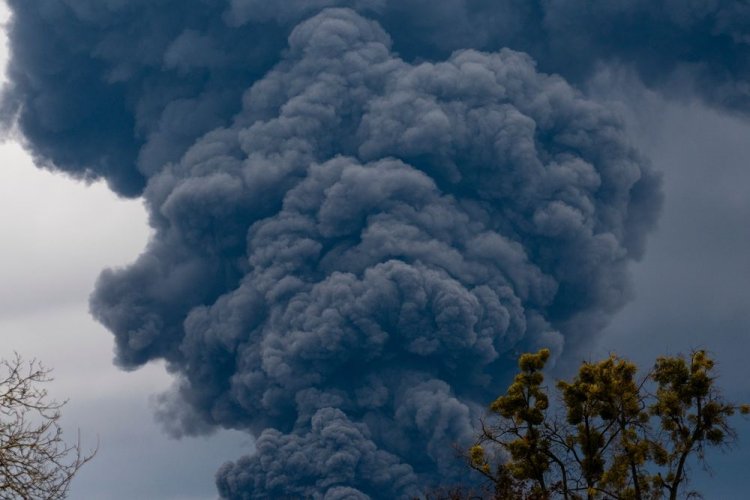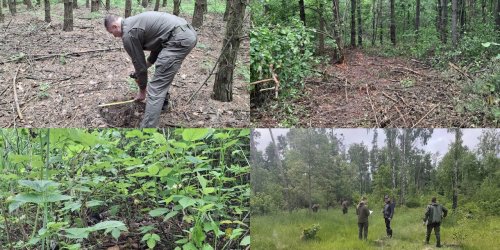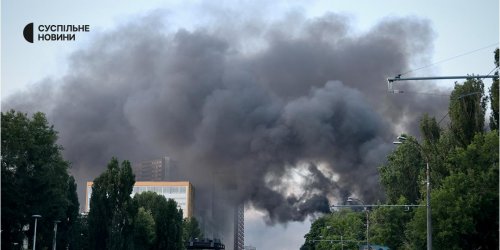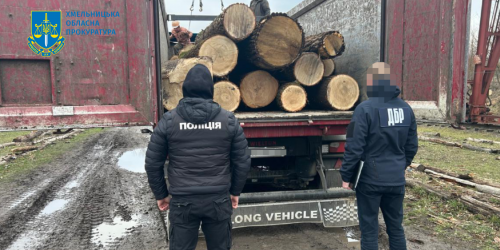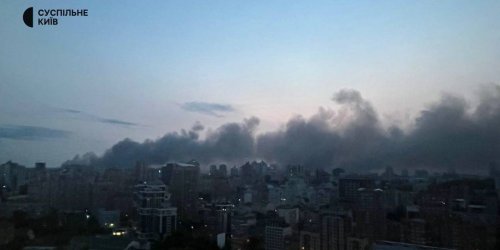The war in Ukraine leads to meteorological, weather and climate changes, and pollution will also affect other countries, in particular russia and Belarus.
Svitlana Boychenko, the doctor of geographical sciences, spoke about the multi-component effects of the war on the environment, reports NB.
As a result of military operations, the detonation products of rockets and artillery shells are released into the atmosphere. Moreover, in the east and south of Ukraine, they are permanent and multiple. These projectiles hit buildings, fires start, and combustion products enter the atmosphere.
"Nowadays warehouses are being blown up most often, so we are talking mainly about nitrogen oxides, heavy metals and gas compounds," Boychenko said.
There are also fires in natural ecosystems and agricultural lands, including burning of crops, forests and green forest strips. This causes additional emissions of gas-aerosol impurities and soot.
Emissions of gases, in particular greenhouse gases, from mobile vehicles — airplanes and heavy machinery running on diesel fuel — will enter the atmosphere.
In addition, pollution is caused by aerosolized soil particles, which are formed as a result of explosions, rise into the atmosphere and can be transported to different distances by turbulent flows.
"As a result of this, harmful compounds can be formed in the atmosphere or useful compounds can be destroyed," she explained.
All the effects of military operations occur in the troposphere, which reaches 12-14 km. They arise in the surface layer at a height of 15-20 m and are then transferred several kilometers upwards.
The effects caused by war can be divided into three components:
- Meteorological – a change in the optical and physico-chemical characteristics of the atmosphere, i.e. its turbidity and the formation of additional gas-aerosol substances.
For example, tropospheric ozone, which works with greenhouse gases, is destroyed as a result of OH emissions.
- Weather – gas-aerosol impurities, combustion products and soil particles can serve as condensation nuclei.
This leads to an increase in cloudiness, precipitation and the frequency of thunderstorms. Acidification of precipitation may also occur – acid rain. Black rains can also occur, when the core of condensation is soot, and the droplet has a grayish tint.
The effect of these combustion products lasts from several hours to several weeks, and then they are washed out of the atmosphere. However, constant shelling prolongs these effects for months.
- Climatic – such changes must be studied for at least 30 years. They can be seen for several years.
The military industry has already started, and it will not stop immediately.
"Besides, we don't know how long the war will last, and whether it will develop into the Third World War," Boychenko said.
Over the past hundred years, the temperature on the planet has risen by 1.3 degrees, and in Ukraine – by 1.4-1.5 degrees. However, the climate is cyclical and is currently entering a period when temperature fluctuations are descending.
Thus, in recent years, the amount of precipitation in July and August began to increase
"Temperature swings await us – against the background of a warm winter, abnormally cold frosty periods will break through. It will not be severe frosts like in 50-70 years, but this winter we can expect sometimes quite low temperatures and, of course, snow. That's why you need to prepare carefully," said Boychenko.
A certain amount of greenhouse gases emitted on the territory of Ukraine can generally lead to warming. But these are minor regional and local influences.
However, such countries as the USA, the EU and Russia have launched their military-industrial complexes, which are very energy-intensive and additionally emit greenhouse gases into the atmosphere.
These emissions have significant climatic effects, because they are global and can affect entire regions in terms of several months to several years.
Boychenko also noted that other countries will also suffer from the war in Ukraine.
"It will depend on the weather conditions, or, as they say, where the wind blows. For example, when the Chernobyl disaster occurred, radioactive particles were found in northern and western Europe and even in Alaska. That is, the smaller they are, the more capable they are of being transported over long distances," she said.
However, russia and Belarus are in the risk group, because these countries are territorially closest to the war zone. In addition, in our latitudes, the westerly movement of air masses prevails – from the Atlantic, they go to the East. That is, all this air polluted by the aggressor's shelling is carried back to the russian federation.
Earlier, EcoPolitic wrote, that the war of the russian federation against Ukraine, destroys people's lives, poses a threat to the health of Ukrainians even in the long term — because of the task of huge damage to the Ukrainian environment, in particular due to soil pollution.
As EcoPolitic previously reported, scientists calculated air emissions from one russian tank per day harm nature in Ukraine more than UAH 1066 losses per day.

